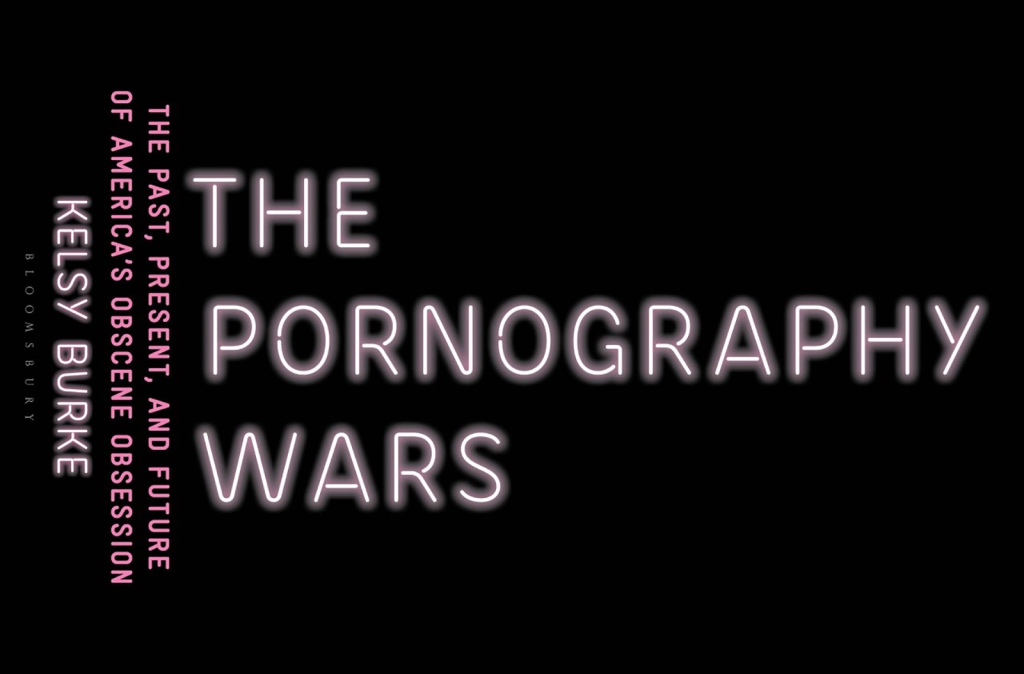Leslie Reed, April 28, 2023
Influence of porn on America is focus of Burke’s new book
Since the advent of easy internet access, pornography seems to have become a ubiquitous influence on American culture. Its tendrils snake through issues ranging from the specific to the fundamental, touching on topics that include censorship, internet regulation, morality, religion, sexual exploitation, gender roles, marriage and divorce, sex education, and a sexualized media.
In “The Pornography Wars,” a book released April 25 to favorable reviews including The Atlantic and the Los Angeles Review of Books, Nebraska sociologist Kelsy Burke presents an in-depth and objective investigation of pornography’s pervasive and often unrecognized influence on American social structure. Burke will lead a public colloquium about her book at 12:30 p.m. April 28, in Burnett Hall, Room 115. In addition, Lincoln’s Indigo Bridge book store, 1624 S. 17th St., Suite 200, will host her for a book launch at 6 p.m. April 28.

For Burke, sociology is the tool she uses to make sense of the persistent ways that sex and religion collide in American culture and politics. Approaching pornography with “curiosity, rather than judgment,” Burke spent five years on her research, interviewing more than 90 people from porn addicts to porn stars, attending conferences, workshops and retreats both “porn positive” and anti-porn, and analyzing newspaper articles, government documents, scientific studies and historical research.
“Rather than direct readers to a single truth about porn, this book instead challenges the myths that surround pornography itself and the people who have something to say about it,” she writes. Following are a few examples of the myths and misconceptions about pornography that the book reveals.
Myth #1: The internet is for porn. “The Internet changed everything and nothing,” Burke reports. Although porn consumption by men ages 18-26 has increased, for most Americans, the jump in porn consumption caused by the internet was relatively small. The vast majority of porn websites, including PornHub, are controlled by a single company, formerly MindGeek now Ethical Capital Partners, and use a YouTube model where users upload personal videos to share with other viewers. Unlike publishers, bookshops and theater owners from the past, website owners are protected from obscenity prosecution by a section of federal law that exempts website owners from liability for materials others post to their site. The provision is now under challenge before the U.S. Supreme Court.
Myth #2: Pornography and American efforts to regulate it are a contemporary phenomenon. Soldiers in the U.S. Civil War frequently shared pornographic books and photographs in their camps, prompting intervention by the Young Men’s Christian Association and the passage of a law banning obscene material from being mailed. Anthony Comstock, a Civil War veteran, helped lobby for harsher penalties and, as a special agent of the U.S. Postal Service, later estimated he was responsible for the obscenity convictions of more than 3,500 people. Near the end of World War II, Director J. Edgar Hoover created the FBI’s “Obscene File,” which by the 1990s contained more than 100,000 cases. The 20th Century saw a rise in U.S. court battles over obscenity; conservative Christian resistance led by the likes of Billy Graham and Jerry Falwell; pornographic film making in Hollywood; and anti-pornography feminism.
Myth #3: Christian conservatives oppose pornography primarily on moral grounds. Morality is an underlying factor, but in recent years, the Christian conservatives’ primary argument against pornography is that it is addictive and leads to self-destructive behavior by users. The existence of pornography addiction is a matter of dispute among psychologists and it is not recognized as a disorder by commonly used diagnostic manuals. However, some therapists, often affiliated with conservative Christian organizations, now provide treatment for what they describe as pornography addiction.
Myth #4: Internet pornography is profitable for performers and producers. One irony of internet porn is that as online videos proliferate, the industry plummets. Porn stars who once earned $10,000 a month by shooting a few scenes can no longer earn a living through commercial porn shoots. Credible studies estimate annual U.S. revenue at about $800 million in 2020. However, the earnings come from ad revenue and mostly go to website owners and tech workers, not performers.
Myth #5: Pornography by definition exploits women. Many feminists join with conservatives in opposing pornography because they believe it dehumanizes and degrades women, at best reducing them to their sex appeal and at worst forcing them into nonconsensual sexual acts and perpetuating rape culture. Other feminists and queer activists resist efforts to shame, blame or censor women who participate in sex work, including pornography. In their view, efforts to stifle pornography have made the industry more dangerous and exploitive of women, especially transgender and Black, Latino, and Asian sex workers.






